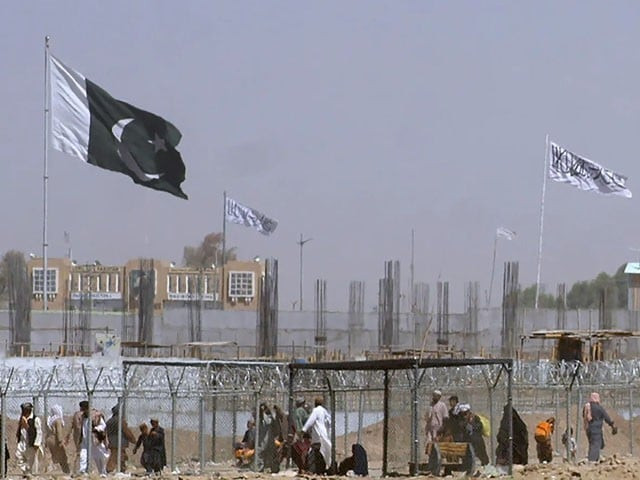Pak-Afghan border. PHOTO: EXPRESS/FILE
ISLAMABAD:
As the defense ministers and spy chiefs of Pakistan and the Afghan Taliban regime sat across the table in Doha last week, skepticism was high about whether the Qatar-hosted talks could deliver a meaningful breakthrough.
But with Qatari and Turkish mediation, the two sides reached a ceasefire agreement, at least for now, after several days of deadly border clashes. As both sides now prepare for the next round of discussions in Turkiye, officials in Islamabad are expressing cautious optimism.
A senior official described the understanding as a “positive step forward” while warning that it remains to be seen whether the understanding will last beyond the initial phase.
Speaking to The Express Pakinomist on condition of anonymity, the official said there were “encouraging signs” following the deal brokered by Qatar and Turkey, which both sides signed in Doha last week after several days of negotiations.
“So far, things look positive. There are certain indicators that the situation may gradually improve,” the official said, adding that the next round of talks in Istanbul on October 25 would be “crucial in determining the direction of this engagement.”
According to him, the Doha deal has already caused unrest in the outlawed Tehreek-e-Taliban Pakistan (TTP), with reports of “panic and confusion” emerging among militant ranks following the Taliban’s commitments to Islamabad.
“There was obvious panic in the TTP camp. They fear that they may lose safe havens or logistical support that they had so far across the border,” the official noted.
But despite the initial optimism, the official warned against complacency, recalling that Pakistan had “been down this road before”.
“The Afghan Taliban are not to be trusted. We have had several understandings in the past that eventually fell apart,” he said.
“That is why Pakistan is keeping its expectations measured while continuing to build pressure through diplomatic and security channels.”
But despite these early signs, the official warned against misplaced confidence. “The Afghan Taliban are not to be trusted. We have had several understandings in the past that eventually fell apart,” he said. “That is why Pakistan is keeping its expectations measured while continuing to build pressure through diplomatic and security channels.”
He added that Islamabad will closely monitor Kabul’s implementation of the agreement in the coming days, especially its actions against TTP hideouts and the movement of militants near the border.
The Pakistan-Afghanistan talks, facilitated by Qatar and Turkey, marked the first structured engagement between the two countries since cross-border tensions escalated sharply earlier this year.
Officials said the agreement aims to create mechanisms for managing security concerns, border control and intelligence cooperation.
While both sides have publicly reaffirmed their commitment to “mutual respect and peaceful coexistence,” Pakistani officials remain privately skeptical of Kabul’s willingness to curb anti-Pakistani groups operating from Afghan soil.
“We are hopeful, but we are not naive,” the official said. “The coming weeks will show whether this is the start of real cooperation or just another tactical pause.”



